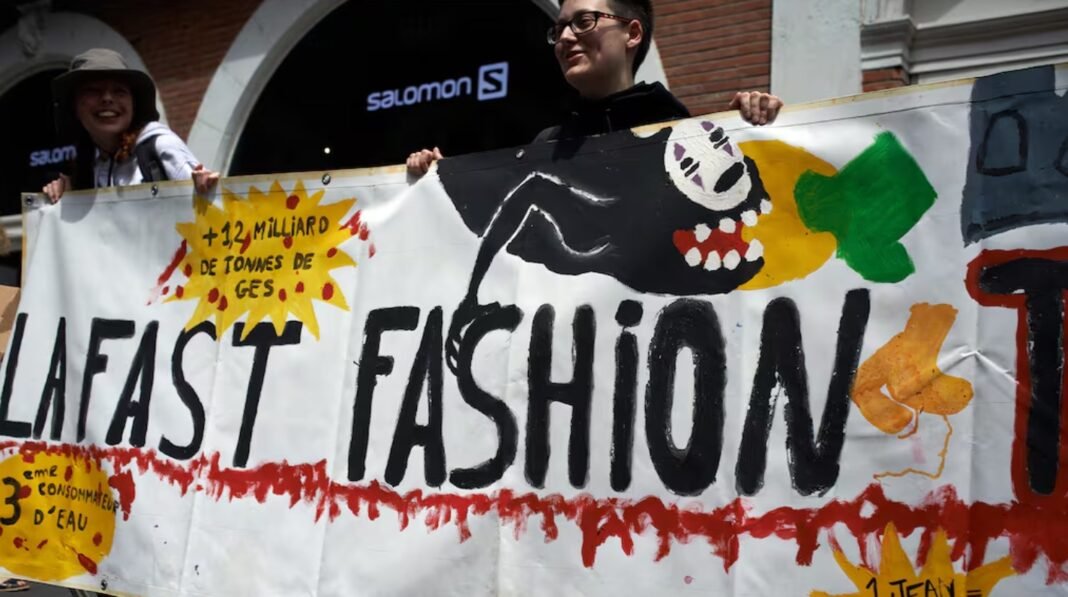The French Senate has yet to act on a proposed ‘sin tax’-style penalty aimed at fast fashion, despite the fact that the bill was unanimously approved by the country’s lower house more than a year ago. This delay is raising concerns among environmental advocates and policymakers who argue that the fast fashion industry’s negative impact on the environment, combined with its role in promoting unsustainable consumption patterns, requires urgent legislative attention.
The proposed tax is part of a broader push to reduce the environmental footprint of the fashion industry, which is one of the largest polluters globally. Fast fashion has long been criticized for its unsustainable production methods, reliance on cheap labor, and its contribution to growing textile waste. By imposing a tax on fast fashion products, the French government aims to curb excessive consumption and incentivize consumers to choose more sustainable options.
The bill, which passed through France’s lower house of Parliament with unanimous support, seeks to apply a financial penalty to clothing items deemed to fall under the category of fast fashion. These products would be taxed at a higher rate, with the revenue potentially being redirected into sustainability initiatives or used to fund the transition to more sustainable fashion production. Proponents of the bill argue that it could help to reduce the environmental damage caused by the industry, while simultaneously encouraging both brands and consumers to embrace slower, more thoughtful fashion consumption.
However, the delay in the Senate’s review of the bill has caused frustration among advocates for sustainability. There is concern that this legislation, which is seen as a step toward addressing the environmental crisis, could lose momentum or become watered down in the legislative process. With the climate crisis intensifying and the fashion industry continuing to contribute significantly to pollution, many environmental groups are urging the French government to prioritize and expedite action on this issue.
The delay also raises questions about political will and the influence of the fashion industry in shaping policy. While France has been a leader in environmental regulation, including its landmark ban on single-use plastics, the fast fashion sector is a powerful economic force, with major global brands based in the country or having a significant presence there. This influence could be a factor in the slow progress of the tax proposal.
As the French Senate delays action, the global conversation around fashion’s environmental impact continues to gain traction. Other countries have already introduced similar measures, including the UK, which is exploring a levy on clothing, and various European Union nations that are discussing new sustainability regulations for the fashion sector. These developments highlight the growing recognition that the fashion industry must change to meet sustainability goals and curb its environmental impact.
In the meantime, France’s move to impose a ‘sin tax’ on fast fashion remains in limbo, and the fashion industry, both domestically and internationally, continues to be closely watched for its response to such regulatory pressures. The proposed tax would represent one of the most significant moves yet by a major European country to address the environmental costs of the fast fashion model, and it’s clear that the outcome of this legislation could have broader implications for how governments worldwide approach sustainability in the fashion sector.
As France continues to deliberate, all eyes are on the Senate to see if they will finally take up this important issue and help set a global precedent for fashion industry reform.






